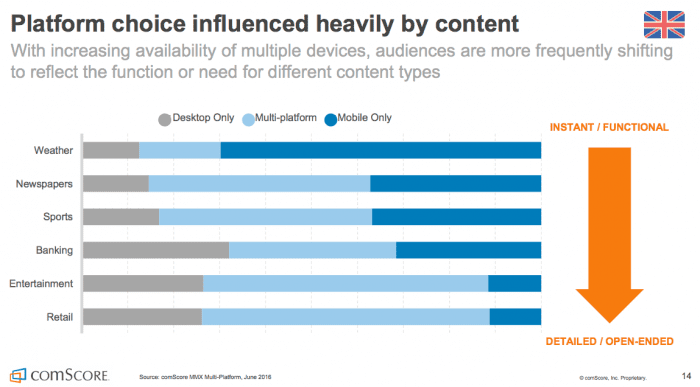How the the Multichannel Majority varies between different sectors
Our mobile marketing statistics summary shows how mobile use has increased such that it now exceeds desktop use in many categories. Following the lead of Google and others, you now often hear marketers and designers talking about adopting a Mobile-first design approach when upgrading their websites. Many responsive designs are led by the mobile experience. This often leads to a simplified design approach which is positive for users and conversion. I was recently working on a consulting project in the insurance sector and it was interesting to see how insurance comparison sites like Money Supermarket, Confused.com and the AA have all adopted a mobile-first design philosophy with simplified designs and reduced copy.
While this is positive, I've chosen today's Chart of the Day to show that it is an over-simplification. The reality is that while smartphone use is overwhelmingly popular for some activities such as social media, messaging and catching up with news and gossip, the majority of consumers in western markets also have desktop (and tablet) devices which they tend to use for more detailed review and purchasing. This explains why mobile conversion rates are much lower in retail and why the breakdown between traffic for retail sites is broadly equal between smartphone and desktop.
The chart from audience measurement platform comScore shows that in many sectors like banking, entertainment and retail there is a multichannel majority who use both desktop and mobile so designs should cater for both.

So we need to think about strategies to engage the Multichannel Majority not simply a 'Mobile first' approach. Adaptive design approaches where desktop and tablet users get a different experience consistent with their context, intent and larger real estate are a technique that can be used to help with multichannel behaviour. comScore has talked for some time about strategies to engage and measure the multiplatform majority across devices and I think there will, or should be more focus on that in the years ahead.







